В этом разделе собраны методические и политические материалы ООН по созданию и управлению инициативами в области посредничества. Материал предоставляет практикующим специалистам практические советы и варианты решения некоторых ключевых проблем и тематических областей в области посредничества, чтобы максимально увеличить шансы на успех.
Руководящие документы Организации Объединенных Наций
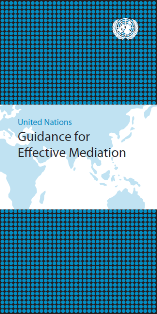
Генеральный секретарь разработал Руководство Организации Объединенных Наций по эффективному посредничеству в ответ на просьбу Генеральной Ассамблеи (A/RES/65/283). В Руководстве определен ряд основных принципов, которые должны учитываться в процессах посредничества: готовность; согласие; беспристрастность; инклюзивность; национальная ответственность; международное право и нормативная база; согласованность; координация и взаимодополняемость посреднических усилий; качество мирных соглашений.
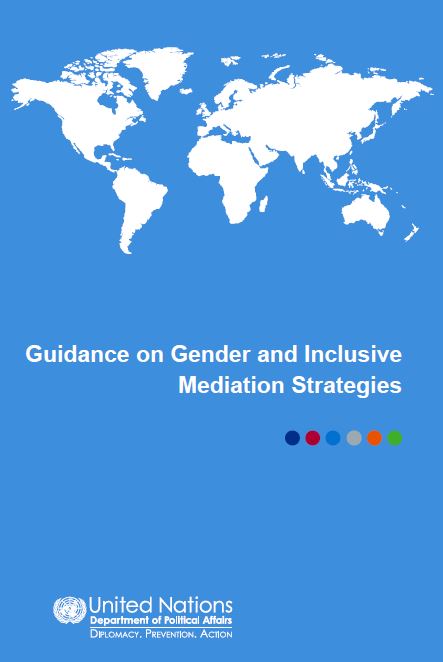
Данное руководство ДПВМ ООН призвано проинформировать посредников и их команды, а также стороны конфликта о принципах и стратегиях эффективного вовлечения женщин, а также о гендерной перспективе в процессы посредничества. В руководстве рассматриваются вопросы подготовки к посредничеству, разработки процесса, а также предметные вопросы, включая меры безопасности, участие, конституции, язык и выполнение мирных соглашений с учетом гендерных аспектов.
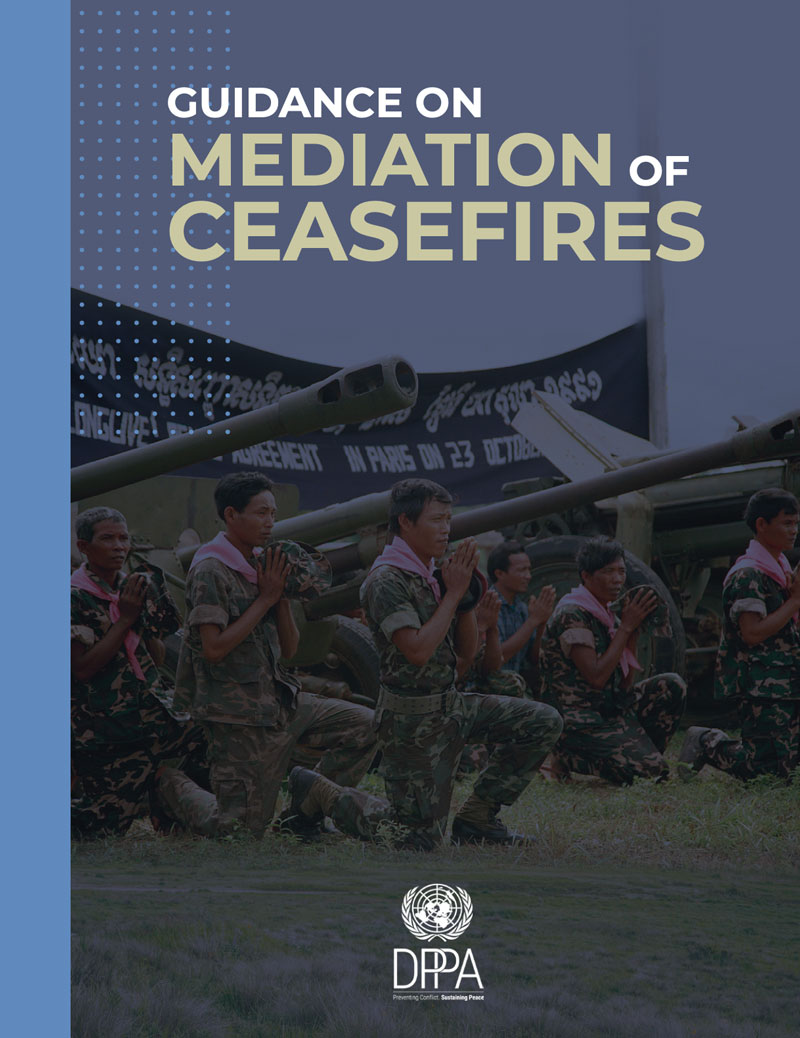
Руководство предназначено для поддержки старших руководителей и сотрудников ООН, посредников и фасилитаторов в ООН и за ее пределами, а также их команд, сторон в конфликте, представителей государств и региональных организаций, национальных и международных неправительственных организаций, женских групп и других заинтересованных сторон в мирных процессах.
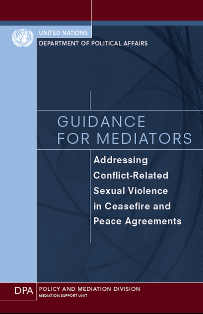
Организация Объединенных Наций требует, чтобы ее посредники занимались вопросами сексуального насилия в условиях конфликта. Данное руководство предлагает посредникам и их командам принципы и стратегии включения этой важнейшей проблемы миростроительства и безопасности в соглашения о прекращении огня и мирные соглашения.
Заметки о политике и практике и периодические издания
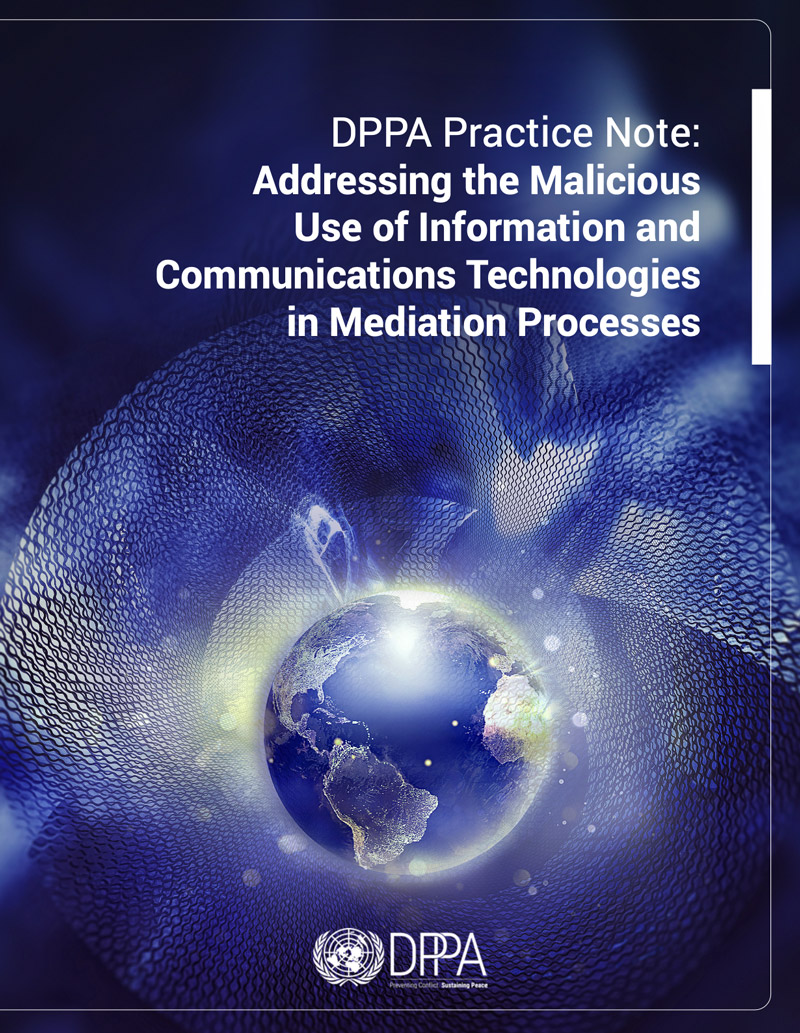
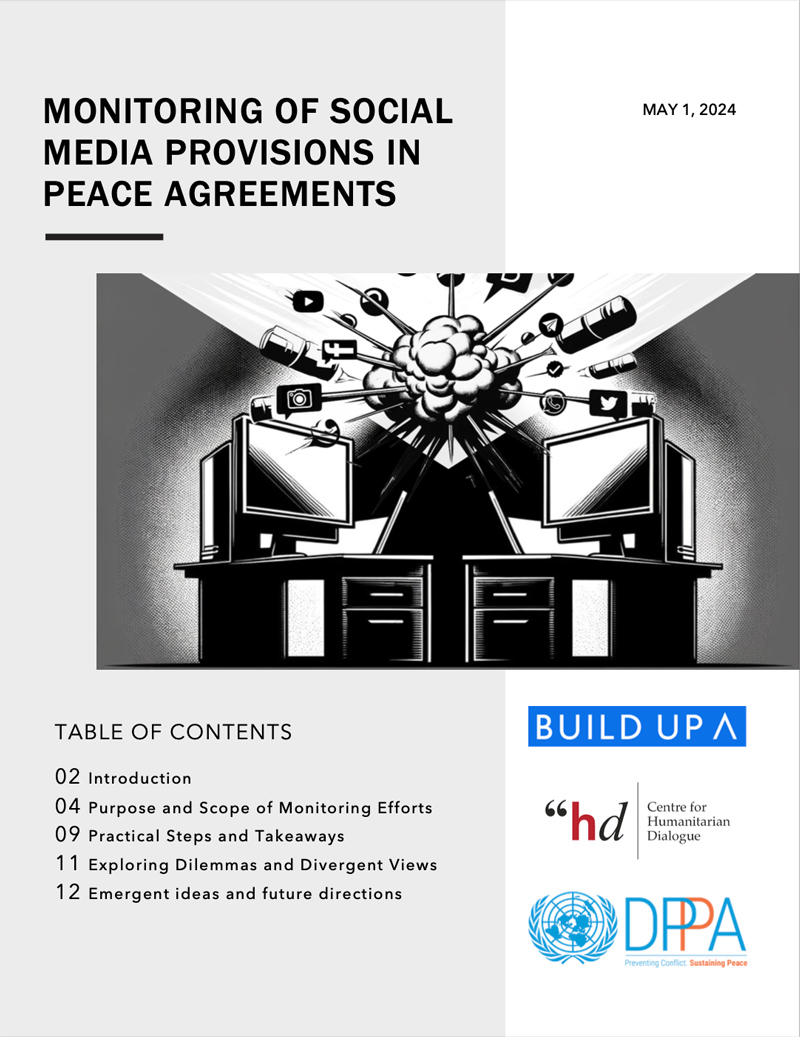
A critical and evolving aspect of contemporary conflict mediation is the impact of social media on conflict dynamics and the mediation process. Mediators are beginning to address this impact through standalone social media agreements, pre-process codes of conduct, or the inclusion of specific social media clauses in broader ceasefire or peace agreements. This brief aims to address the as yet understudied challenge of how to implement and monitor social media provisions in peace agreements.
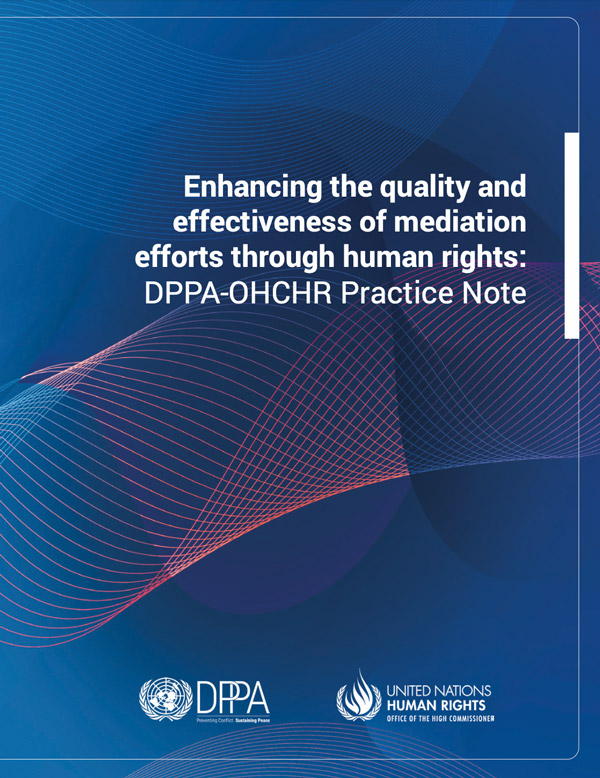
This practice note, a DPPA-OHCHR collaboration, delves into practical strategies and real-world examples to help mediators and human rights practitioners weave human rights principles and considerations into their work in general and in every step of mediation efforts specifically. The note shows that human rights offer practical solutions to many of the challenging issues that mediators try to address.
A New Agenda for Peace outlines Secretary-General António Guterres' vision for multilateral efforts for peace and security, based on international law, for a world in transition. It reflects on today’s peace and security threats – including the changing conflict landscape; persistent violence outside of conflict environments; the potential weaponization of new technologies; rising inequalities; shrinking civic space; and the climate emergency – and emphasizes how violations of the UN Charter and a pushback against human rights, in particular women’s rights, represent a significant normative challenge.
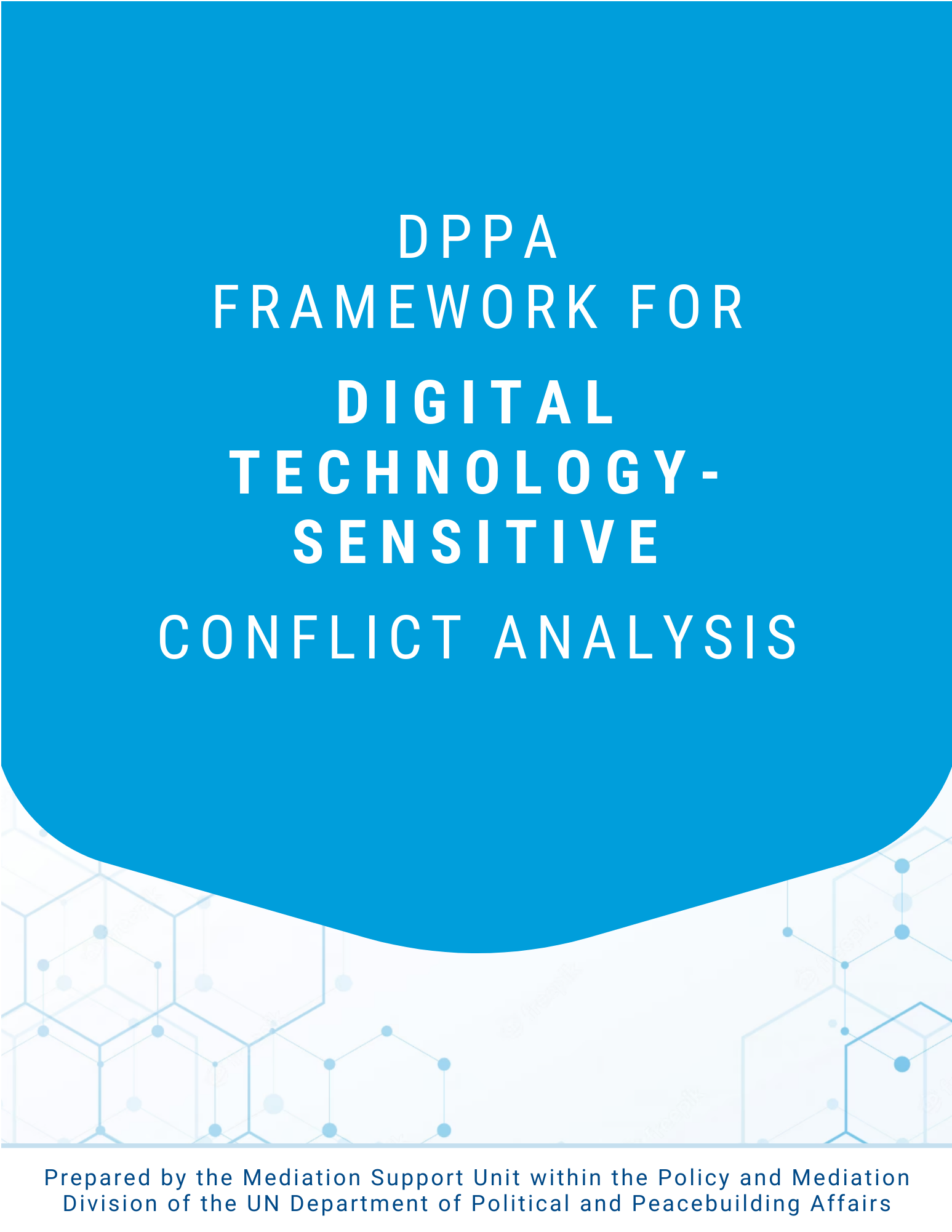
Digital technologies are also changing the character of conflict as parties increasingly rely on them to advance their objectives. Mediators and their teams need to consider additional factors such as the digital ecosystem of a given setting and how digital technologies and related data issues influence the power dynamics of a conflict. To address these new developments and help mediators and political affairs officers navigate the issues, the DPPA Policy and Mediation Division has prepared a Framework for Digital Technology-sensitive Conflict Analysis.
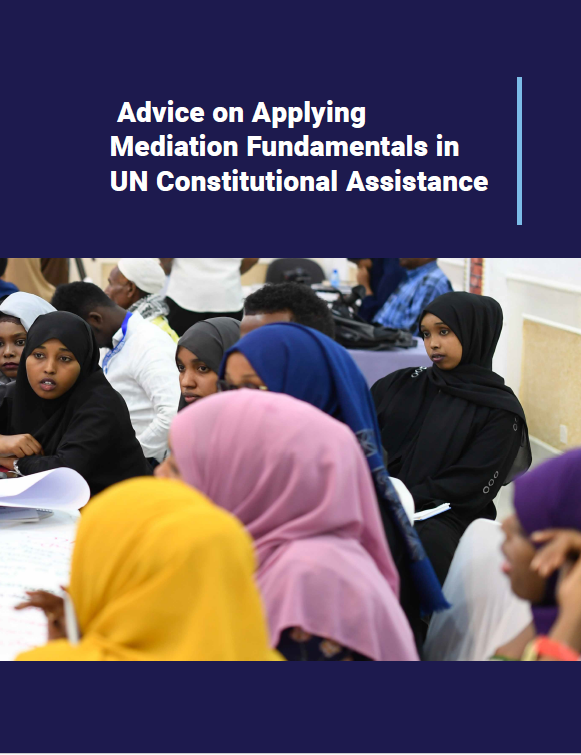
This paper captures key lessons learned in the author's two-year secondment to the Department of Political and Peacebuilding Affairs (DPPA) Policy and Mediation Division, Mediation Support Unit, during which the author supported constitution-making processes and provided advice on handling constitutional issues.
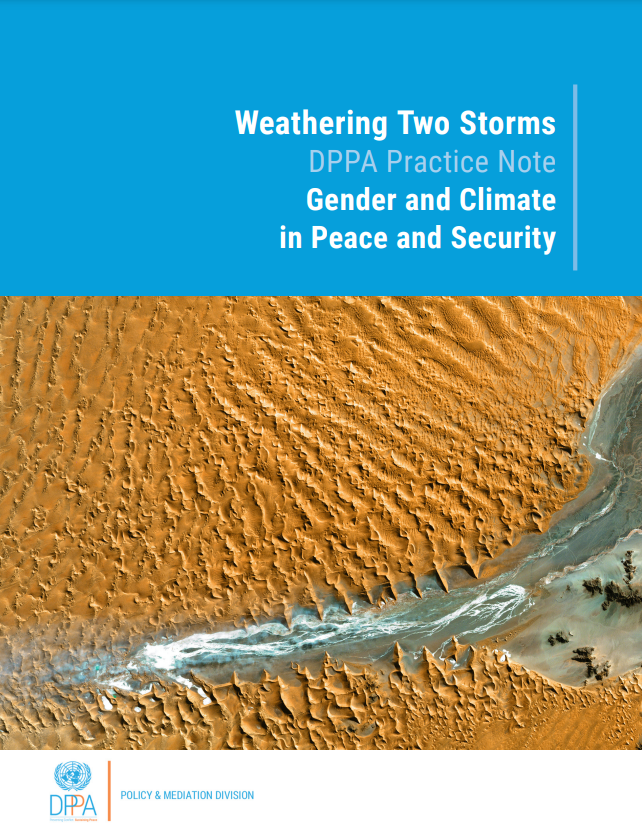
The world is facing unprecedented risks from climate change. Droughts, erratic rainfall, and extreme weather events affect people, livelihoods, and economies across the world.
The subject of justice and accountability raises significant challenges in peace mediation contexts, as well as in the implementation phase following a peace agreement. These challenges usually cannot be avoided and simply must be worked through. However, there are steps that the United Nations can take so that its staff and representatives are in a stronger position to plan, to respond to the substantive questions that arise and to better coordinate with each other. This paper sets out some of these challenges, and offers both policy and strategy ideas for addressing them.
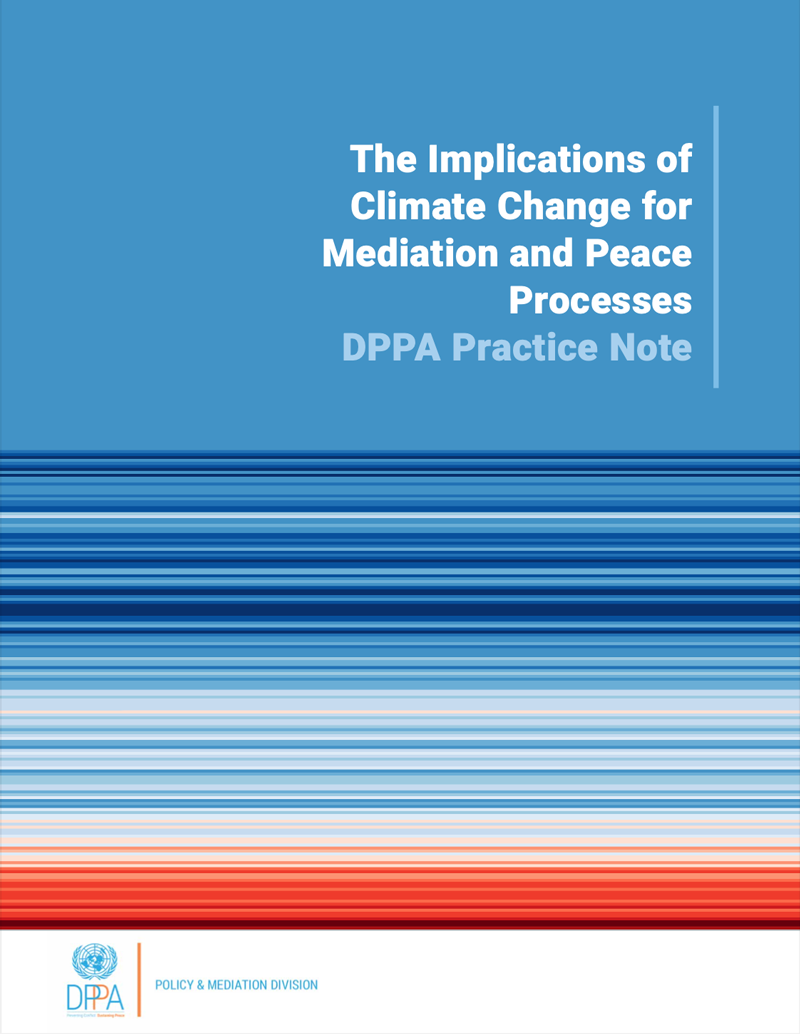
Climate change effects are felt in every corner of the world and can affect conflicts in different ways. They can be a source of conflict, a multiplier of existing risks, or an opportunity for manipulation by conflict parties. Building on DPPA’s broader efforts to address the complex linkages between climate, peace and security, this note aims to provide guidance to mediation practitioners operating in climate exposed and fragile contexts.
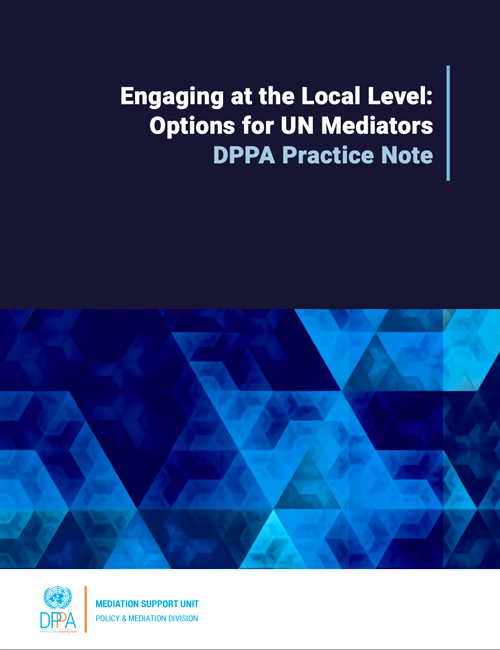
This Practice Note outlines circumstances under which more direct involvement with local conflicts and mediation processes might be strategically relevant for United Nations mediators working on national political processes.
This paper highlights that peace processes are an important, albeit atypical, arena for policymaking, generally and in relation to transitional justice. This paper examines how the concept of
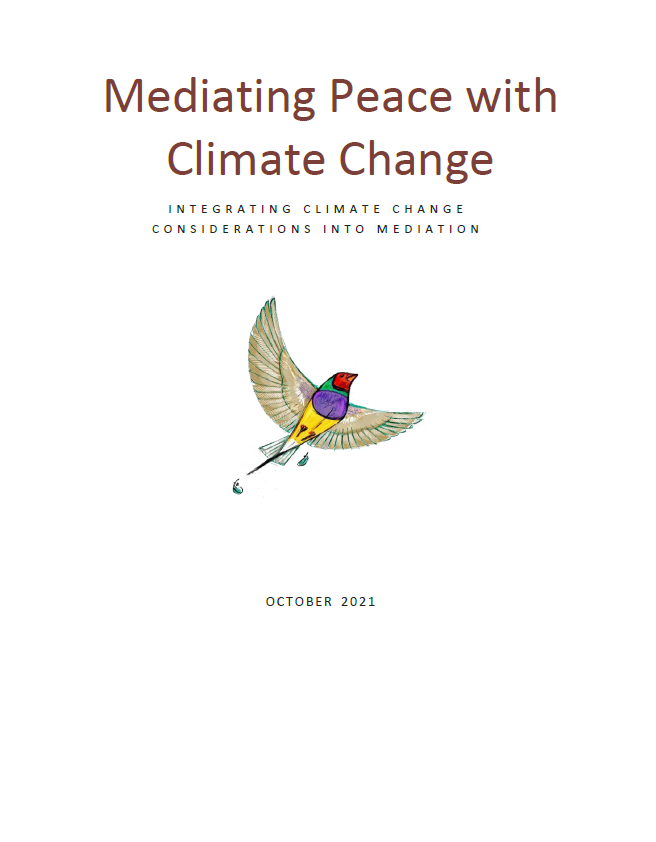
This report is a contribution to ongoing efforts in the United Nations Department of Political and Peacebuilding Affairs (DPPA) to address the impact of climate change on mediation and preventive diplomacy. It was commissioned by DPPA with support from the Government of the Republic of France and prepared by Alex Grzybowski and Chanda Hunnie of Pacific Resolutions. Views expressed in the report are those of the authors and do not necessarily reflect those of DPPA.

Gender-sensitive conflict analysis is the systematic study of the gendered causes, structures, stakeholders and dynamics of conflict and peace. Addressing common gender biases in conflict analysis will provide a more accurate and comprehensive understanding of the root causes, triggers and drivers of conflict, and enable more informed and effective action.

On 23 March 2020, Secretary-General António Guterres issued an appeal for an immediate global ceasefire to help create conditions for the delivery of lifesaving aid, reinforce diplomatic action and bring hope to places that are among the most vulnerable to the COVID-19 pandemic. As of 23 June 2020, the Secretary-General's call had received support from 179 Member States and one non-member observer State, as well as a range of regional organizations and international and local civil society actors.
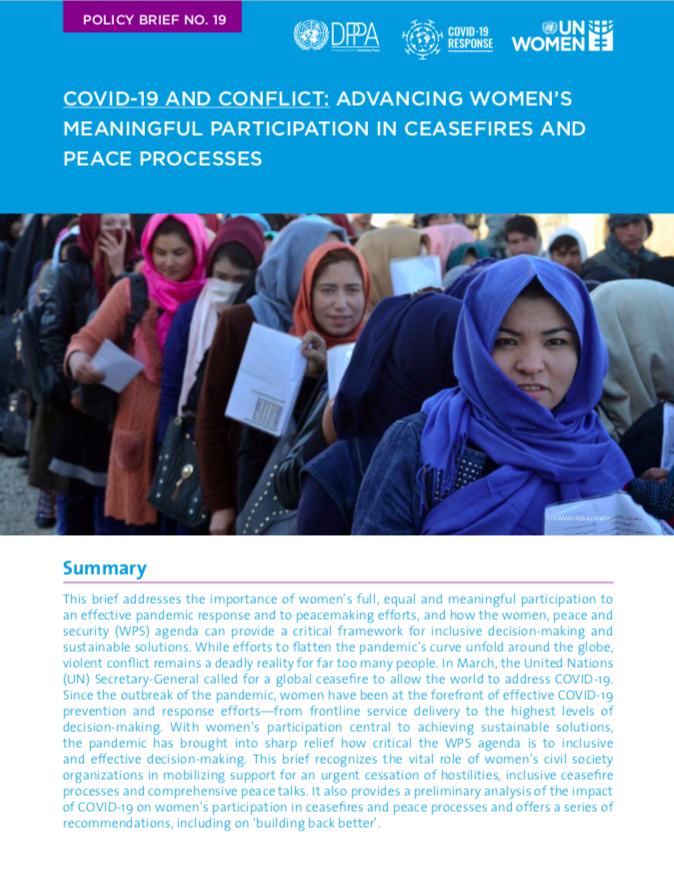
В данной Политике рассматривается важность полного, равного и значимого участия женщин в эффективных усилиях по миротворчеству и реагированию на пандемии. В нем говорится о том, как повестка дня "Женщины, мир и безопасность" может стать важнейшей основой для принятия инклюзивных решений и выработки устойчивых решений.
